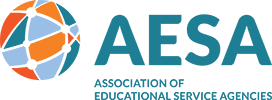This week, the Biden Administration released its long-awaited final rule on Supporting the Head Start Workforce and Consistent Quality Programming. The rule updates various aspects of the Head Start Program Performance Standards, but most notably, significantly increases compensation and benefits for staff in an effort to improve retention and recruitment for the program.
The rule requires that all programs by August 2031, 1) create or update a salary scale for employees that promotes competitive wages; 2) ensure that salaries for Head Start educators are at least comparable to those of preschool teachers in public school settings (or at least 90% of public kindergarten teacher salaries); 3) ensure Head Start staff receive pay that is at least sufficient to cover basic costs of living in their geographic area; and 4) must ensure wages are comparable across Head Start Preschool and Early Head Start programs for staff serving in similar positions with similar qualifications and experience.
The proposed rule, released in December 2023, received strong feedback that these requirements would have adverse effects on the ability of smaller programs to continue serving the same amount of students. In response to this feedback, in the final rule, HHS added additional flexibility to the wage requirements:
- In 2028, if the annual average of Head Start appropriations increases are less than 1.3%, the Secretary may establish a limited waiver for the final rule’s wage requirements, to mitigate slot loss in programs determined to be meeting quality benchmarks. To be eligible for such waiver, grantees must meet specific conditions, including that it would have to reduce enrolled Head Start slots to implement these requirements.
- For “small Head Start agencies” – with a funded enrollment level that is at or below 200 slots; medications were made to the wage requirements. These entities must now make improvements in wages to reduce disparities between wages and benefits in Head Start educators and preschool teachers in public schools. Small agencies are also required to establish or update a salary scale or pay structure that promotes competitive wages for all staff and takes into account responsibilities, qualifications, experience, and schedule or hours worked. While small agencies have flexibility to phase in wage and benefit increases according to their budgets, ACF strongly encourages these programs to invest in higher compensation by restructuring their budgets, targeting the annual cost-of-living adjustment (COLA) to compensation, and seeking other available funding sources that can be used to enhance compensation.
Other changes from the proposed rule include: a four year (rather than a two year) timeline for phasing in benefit requirements; removal of the requirement to provide paid family and medical leave beyond the existing requirements in the Family and Medical Leave Act (FMLA); and additional flexibility to implement monthly mental health supports; and more flexibility in how programs prevent exposure of children to lead in water and paint of Head Start facilities.
